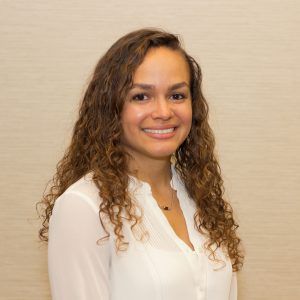How would your studies and / or your professional experiences advance the goals of WPA-GO? These goals may be found in the About Me section of WPA-GO’s website: http://wpacouncil.org/wpa-go (no more than 150 words) *
My academic, volunteer, and professional experiences have prepared me to be a supportive and innovative member of the WPA-GO Graduate Committee. My enthusiasm for peer-mentoring and networking began with my experiences at Pomona College’s Writing Center and as a Fulbright English Teaching Assistant in Panama and continued as a 9th Grade Composition Teacher and volunteering as a Posse Foundation Academic Writing, Resume, and Fellowships Coach: I enjoy utilizing the leadership and career training I’ve accumulated through these experiences to work across differences as a member of a team to tackle projects in an organized and efficient manner. A position on the committee would allow me to collaborate with other scholar-professionals to develop academic and professional development opportunities in organizational administration and service, help build stronger bridges between writing programs in K-12 and higher education settings as well as between graduate organizations, and contribute positively to the WPA-GO community.
What kinds of support do you value as a graduate student and how would you further those forms of support for others through WPA-GO? (no more than 250 words) *
As a graduate student, I value intentional, reliable, and individualized support in finding and taking advantage of diverse teaching, professionalization, and leadership opportunities that match my interests. I appreciate opportunities to research topics I care about and engage with a rigorous and encouraging community to enhance and challenge my ideas. As such, through WPA-GO, I hope to develop resources and opportunities for my colleagues to discover and take advantage of academic and professional development opportunities that are not tangentially related to their interests, but rather programs and projects that overlap significantly with their priorities. As a first-year PhD student in Composition & Rhetoric, I can commit to the full two-year term on the Graduate Committee. In addition, my academic and professional experiences developing classroom and extracurricular activities that engaged students of all ages and backgrounds in English language arts have helped me learn to think big while remaining detail-oriented. Therefore, I can be an innovative and reliable team member who can extend ideas, organize and execute large projects, and meet deadlines. With these skills, I hope to help colleagues utilize WPA-GO to pursue their personal interests and goals by facilitating the opportunity to engage in collaborative research with individuals from other institutions and exchange information about useful experiences in program administration available across the country.
CWPA pledges to “foster inclusion more generally; promote research into student diversities; promote policies that increase diversity in our membership and in the population of people who administer writing programs; and explicitly act against the structures that cause injustice today,” and WPA-GO is dedicated to supporting this mission. How will your selection to the WPA-GO Graduate Committee advance these goals? Please answer this question by choosing one barrier you identify to meeting these goals in writing studies. How would your work within WPA-GO specifically address this barrier? (no more than 500 words) *
My selection to the WPA-GO Graduate Committee will allow me to advance the CWPA’s goals because I have the capacity and motivation necessary to pinpoint ideas and practices in writing program administration that undergird barriers to increasing diversity and acting against structural injustice. I am dedicated to collaborating with other WPA-GO members as well as members of other graduate organizations (such as caucuses and SIGs, DBLAC, and IWCA) to suggest, revise, implement, and participate in lasting solutions to these issues. The structural injustice that leads to a lack of diversity in CWPA members and the population of people who administer writing programs is a barrier that causes me, a woman of color, a lot of anxiety. I want to be a Writing Program Administrator; I want to contribute to meaningful WPA research and assessment. I do not want to feel as if my contributions and experiences are discounted or simply tolerated because of my identity or positionality. I want to feel confident, prepared, respected, and appreciated as a member of the (inter)national WPA community. While this is what I seek from membership in CWPA, and especially WPA-GO, other members may envision other types of support from the organization. As such, I strongly believe that breaking down barriers of structural injustice—that is, helping members of underrepresented groups feel welcome and supported in writing studies— must begin with asking WPAs, aspiring WPAs, and inquiring or possible WPAs about their experiences, their needs and desires, about what has held them back and pushed them forward in their work. Armed with this first-hand information, we might then collaborate with these same groups to devise, realize, and adjust solutions accordingly, just as the Census Task Force has been doing this year with the Graduate Program Data Collection. As a member of the WPA-GO Graduate Committee, I would be committed to carrying out this investigatory and cooperative work with members of the graduate organization. Such work could take form in the development of a searchable digital archive of academic materials (such as annotated bibliographies, syllabi, successful research and grant proposals, practical videos, adaptable data and learning activities) relevant to WPA graduate work. These could be compiled on an extension of the Mentoring Blog and feature contributions by WPA-GO members that are curated by the appropriate WPA-GO standing committee(s) according to expressed member needs. In addition, the shared experiences of veteran and aspiring WPAs might help WPA-GO offer targeted (virtual and/or in-person) professional development in partnership with other organizations (such as the National Center for Faculty Development) and facilitate felicitous micro-mentoring between members. Finally, critical writing studies summer reading groups and/or semester writing groups could help WPA-GO stimulate support among members. These materials and events would support CWPA and WPA-GO’s goal to “foster inclusion” by encouraging a sense of comradery in facilitating opportunities to network over similar interests and relevant experiences.
